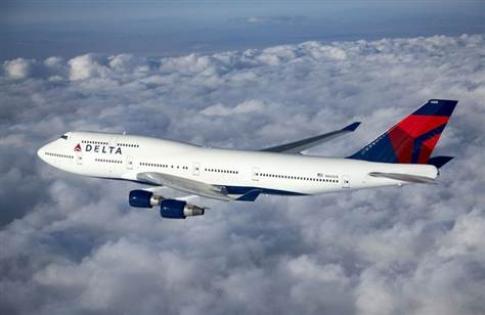Latest News
Government to ban excessive card fees

Government to ban surcharges on payments to airlines and other firms after campaign to end 'last-minute' fees.
Nicholas Watt
Airlines, cinemas and holiday firms are to be banned from imposing millions of pounds in "hidden last-minute" charges on internet bookings as part of a crackdown to be announced on Monday.
Mark Hoban, the Treasury minister, will say that the government is prepared to legislate to prevent airlines and other businesses from imposing hefty charges on credit and debit card bookings that are difficult to detect.
The consumers' organisation Which? welcomed the move that comes after a "super complaint" it made to the Office of Fair Trading about airline surcharges.
The Treasury decided to go a step further and ban "excessive surcharges" on credit and debit cards by most "retail sectors". Ministers could have opened themselves up to a judicial review if they had just targeted airlines. The ban is to be imposed from the end of next year.
Which? says consumers pay £300m a year in card surcharges. It says airlines are the greatest offenders, and highlighted the way in which Britain's two largest cut-price airlines add on charges:
• easyJet imposes an £8 "booking fee" for all transactions except for payments made by Visa Electron. Most credit card bookings incur a further fee of 2.5% of the transaction, with a minimum charge of £4.95. Those fees are only added at the final stage of booking.
• Ryanair charges £6 per passenger per one-way flight. That means a family of four booking a return flight in one booking will face a charge of £48.
A "total cost" is given by Ryanair at the penultimate stage of the booking with a note in red which says: "Excluding administration fee (if applicable)." The £6 is only added at the final stage when the customer identifies their debit or credit card. Passengers can avoid those charges if they sign up for Ryanair payment cards.
Which? Says an airline incurs costs of between 8p and 20p on debit card transactions. Those rise to between 0.88% and 1.8% of the transaction for payments by credit cards. It means a passenger paying the average return fare of £136.09 should pay a minimum of £1.20 and a maximum of £2.45 for a credit card booking.
Hoban will say: "We want consumers to be able to shop around. They have a right to understand the charges they may incur up front and not be hit through a hidden last minute payment surcharge.
"We're leading the way in Europe by stopping this practice. The government remains committed to helping consumers get a good deal in these difficult times."Richard Lloyd, executive director of Which?, said: "The government's decision to ban 'rip-off' debit and credit card surcharges is a huge victory for consumers. This announcement goes further than the Office of Fair Trading's proposals, finally putting an end to these unfair and excessive charges. Over 50,000 people supported Which?'s campaign to see these fees stamped out.
"Given that airline passengers alone pay more than £265,000 a day in card surcharges, businesses shouldn't drag their feet over this. While the law will come into force at the end of 2012, we want companies to be upfront and fair over card charges today."
Guardian
Rate this article




 del.icio.us
del.icio.us Digg
Digg

Post your comment